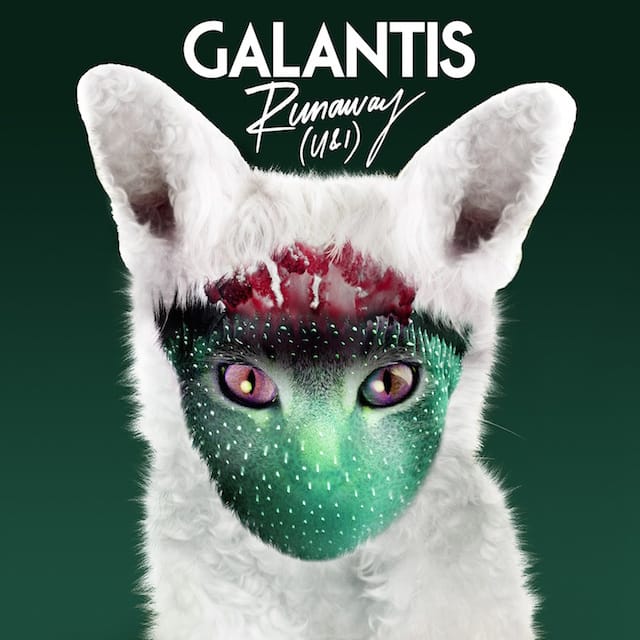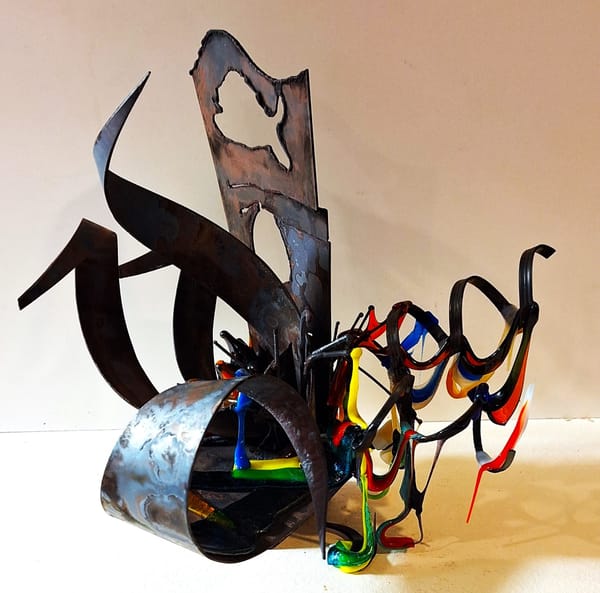Galantis, Intimacy Machine
A cascading synthesizer shimmers as a nondescript female voice starts whispering various stock phrases. The melody builds a little, there’s a brief pause, then the singer becomes a chipmunk and the synthesizers start blocking out the beat.

A cascading synthesizer shimmers as a nondescript female voice starts to whisper stock phrases. The melody builds a little, there’s a brief pause, then the singer transmutes into a chipmunk and the synthesizers start blocking out the beat. After a measure of whiny-ecstatic singing, the chipmunk goes a few octaves higher, burbling and bleeping, with all the requisite vocoded squeal: “You-u-u and I-i-i-i-i/You-u-u and I-i-i-i-i…” in a pitch so dinky it could shatter a dog whistle. Then the synthesizers break into a million glass fragments and the drum machines go into overdrive, pounding and stabbing and crunching and sliding in that brain-clobbering EDM style that turns clubs into rollercoasters and sets saunas on fire. The song is “Runaway (U & I),” by Swedish electronica duo Galantis. It’s insanely, unfairly catchy, and it’s been a hit single all year.
“Runaway (U & I)” fits the reigning formula in commercial EDM, as electronic dance music is called nowadays. It’s got the sensitive femme vocals, the sudden changes in volume and dynamic, the gradual build leading into an explosion, the stylized action-movie gravity, the rattling bass drums, the sleek appropriation of what was once a dark, spiky, abrasive, dubstep synthesizer sound. Discounting all the microgenre terminology applied to electronic music when individual producers want a catchy tag for their new single, it was dubstep (and not ‘90s dance/rave music) that first brought forth what we now know as the modern EDM synthesizer, that piercing, semipercussive shudder shaped into snarling, screeching patterns that recalled nothing so much as heavy metal with keyboards replacing guitars — molten power chords forming gargantuan hooks, frequently utilizing half-step dissonance, drenched in a giddy, sweaty angst that veers precariously between macho aggression and trembling insecurity; boy, it’s practically the same genre. And when dubstep went commercial in the form of electrohouse, neotechno, club music — a million different names for what anybody would recognize as EDM plain and simple — that synthesizer sound began to inflect three-minute pop songs. Galantis, two previously established DJs teaming up to double their dancefloor mastery, now specialize in three-minute pop songs, but the jagged dubstep synthesizer remains, shocking to life material that might otherwise suffer from chronic blandness syndrome, jittering its way through Pharmacy, their debut album, out since June.

That said, the designated synthesizer loses much of its jagger in the process — it gets scrubbed through and slicked up and sponged over, sterilized and decontaminated, its sharp edges dulled and cleansed, converted into a focused, gleaming surge of energy appropriate to the expert popform. Rather than venting their rage via dubstep-style megahooks or carving out an electronic soundscape the way artier producers do, Christian Karlsson and Linus Eklöw love dance music for its catharsis quotient. Blissful, mindless, rhythmic, spiritual energy is their endgame, an ambition they attain through writing earnest, celebratory songs about that energy and setting them over a punchy dancebeat. Various anonymous guest voices (folksy heartthrob on “Gold Dust,” karaoke wailer on “Forever Tonight”, sensitive sigher on “Louder, Harder, Better”) sing quieter verses and a nominal chorus before the massive synthesizer fireworks that function as true refrains emerge, providing a humanizing sentimentality to the polished steel whooshing and zooming underneath. Several hooks on Pharmacy slice through your ear tissue with sharp, sticky precision; “Runaway (U & I)” especially is a triumph of the genre nearly as compelling as Calvin Harris’s “I Need Your Love” or Martin Garrix’s “Animals,” its helium-saturated vocals and tricky harmonic shifts sneaking up on you from behind and tickling your spine. But the overall feel of the album, metallic though it may be, tends more toward shiny, saccharine, pristine, plastic rather than any form of harsh. These are happy songs, mostly, pumped about the ongoing party; they surge and spin with the confidence of a dancer high on endorphins. They evince vast reserves of the intense, exhausting pleasure that only kicks in once the dancefloor has collectively reached a rarefied state of transcendent uplift.
Achieved through searing beatmastery and gradual increase of intensity, this kind of uplift can be a fabulous thing, but in a pop song it sounds corny as hell, even pop songs with instrumental breaks as loud and climactic as these. Where an instrumental dancebeat can reach a certain level of rapture simply by persisting over an extended period of time, shedding flecks of sound and spark while concurrently speeding up and winnowing itself down to an essence of pure laser beam, the popcraft discipline required here aligns Galantis rather too closely with a tradition of adult contemporary ballad frequently adopted by European masterminds aiming to make a splash on the American charts, a tradition that only the dinky “Peanut Butter Jelly” escapes entirely and that only “Runaway (U & I)” converts into a valid vehicle for pop thrill. “Louder, Harder, Better” alternates jumpy, loopy, squeaky synthesizer throb with a quieter, more contemplative vocal, with the anonymous guest singer’s voice conveying a sense of dazed romantic bliss that in turn tenderizes and cutesifies the electronic wobble. “Kill ‘Em With the Love” does digital jumping jacks over its bouncy piano stabs, riding a more conventional and less percussive style of keyboard melody as the vocalist moans and blubbers. “Call If You Need Me” unleashes a smashing, colossal hook monster, an undeniably solid pleasure machine, moving from restrained verse to excited bridge to exuberant chorus/drop, layering rubbersynth atop bubblesynth atop metalsynth, joyfully squealing at its own audacity. But they’re soft, gooey heartsongs every one, sappy in their joy, tame in their breathy spirituality. Neither catchiness, good cheer, nor the heavily textured, scarily efficient electric pulse that carries most of the songs into catharsisland lessens their sweet, infantile vapidity a smidgen. In fact, it’s the sound of the synthesizer itself, Galantis’s very own sharpened/slickened instrumental signature, that makes much of the album intolerable.
Given the music’s cleanliness, its immaculate surface and hygiene, the gleaming metallic texture creates an idealized, mechanized environment — a fighter jet, an electric train, whatever, it’s sanitary, it’s antiseptic — and, at the same time, an environment explicitly designed for dancefloor uplift. First you hear the harsh, loud, towering keyboard crunch; then that keyboard crunch propels you to new heights of spiritual elation; you discover the human vulnerability underneath. Here we have music for young people comfortable with the many ways technology creates distance and protection in our lives, yet who, because of this, crave intimacy more desperately than ever — so desperately they settle for an album that seduces with neat hooks and then shocks with rank sentimentality. Such bait-and-switch tends to cut rather deeply into the spiritual elation. If this is technological utopia, give me biological hell.
Runaway (2014) and Pharmacy (2015) are available from Amazon and other online retailers.





